From agony to ecstasy – and back again
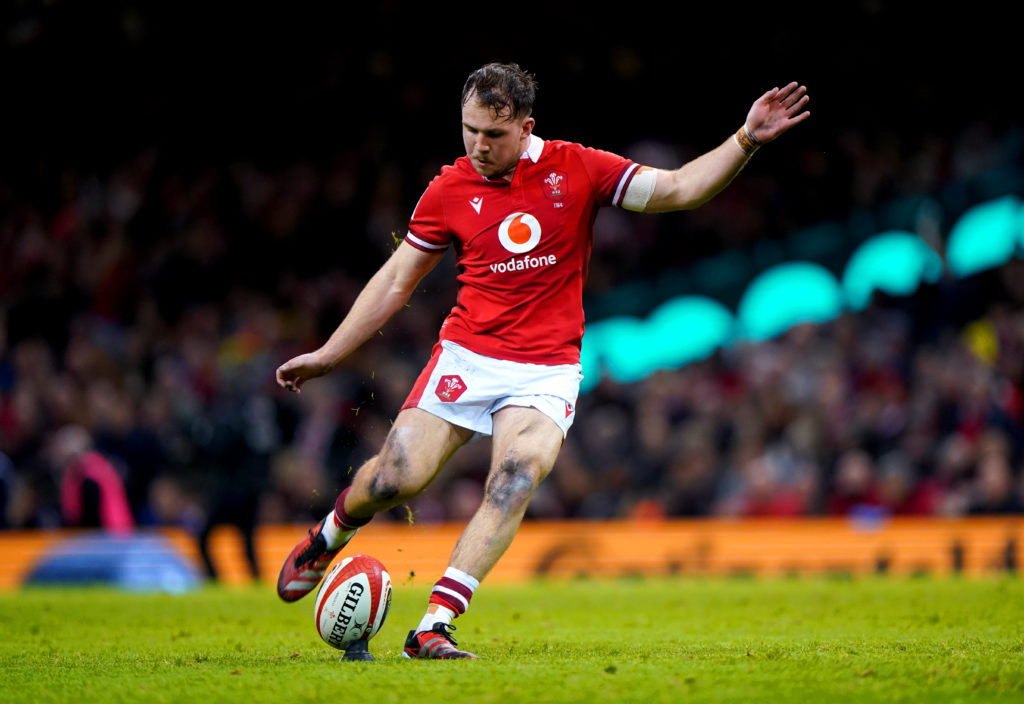
Simon Thomas
Just what is it about Wales-Scotland games in Cardiff?
It’s a fixture that has thrown up a succession of classics over the years and this was another to add to the list.
Yet there had seemed no chance of that being the case midway through the contest at a packed Principality Stadium.
When Duhan van der Merwe scorched over for his second try three minutes after the break, it put Scotland 27-0 up.
It looked as though we were heading for one of the most one-sided affairs in the 140 years of matches between the two countries.
No-one, but no-one could have imagined what was about to happen next.
Former England captain Martin Johnson perhaps summed it up best.
“It looked like Wales were going to get blown away, but it turned into an epic,” he said speaking on the BBC.
Epic
An epic it certainly was, a quite extraordinary and thoroughly bonkers one.
It was also the strangest of encounters, one that left both sides feeling disappointed.
Scotland were vexed over the way they had let their complete control of the game slip from their grasp through indiscipline, while Wales were frustrated both by their sorry first half display and the fact they couldn’t quite complete the most remarkable of comebacks.
Welsh coach Warren Gatland readily admitted his team’s performance in the opening 40 minutes had been “absolutely terrible” and that’s just one of many descriptions that would fit the bill.
Wretched, woeful, dire and shambolic are also words that spring to mind.
It was one of the very worst halves during Gatland’s lengthy tenure.
Wales were inaccurate in just about everything they did, with the lineout particularly dysfunctional as they went awry five times on their own throw.
The contrast between the two sides in terms of speed of ball was also painfully stark. Scotland’s rapid recycling was key to tries from prop Pierre Schoeman and wing Van der Merwe, whereas the hosts had to work so hard to retain possession and when they did it was desperately slow and laboured.
That contributed to them resorting to putting boot to ball time and again. Now a kicking strategy is fine if you win the aerial battle or the territorial contest. Wales did neither and compounded things by giving away penalties for going offside from kicks.
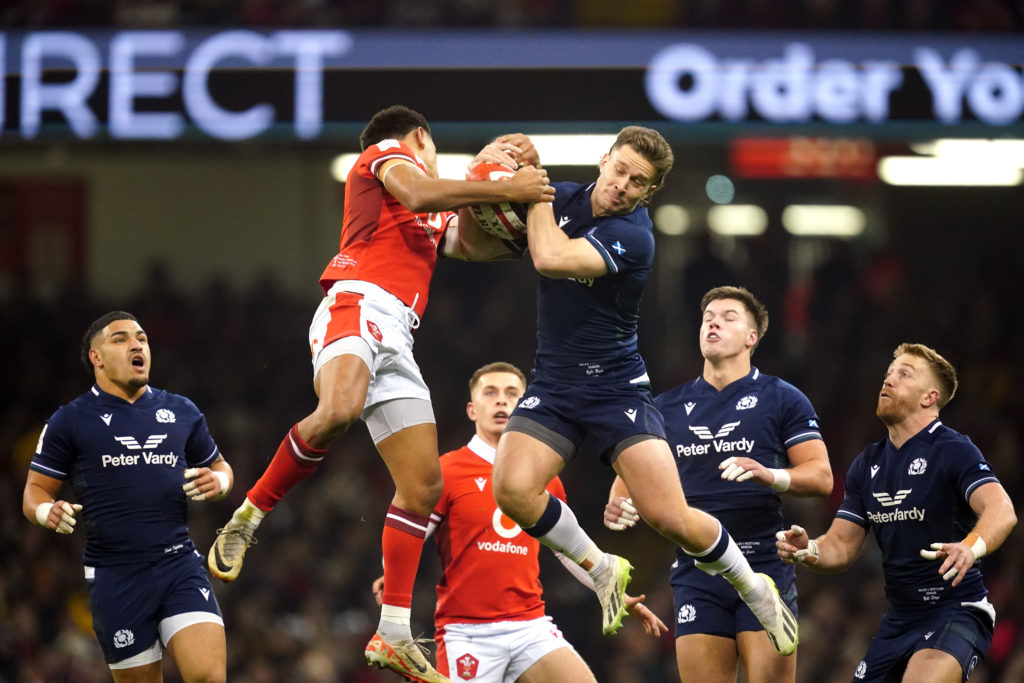
Scintillating
Put together, all these failings resulted in a 20-0 half-time deficit, which was then swiftly extended by Van der Merwe’s scintillating second.
At that stage, you feared an absolute hiding was on the cards.
But you just never know what lies around the corner in this fixture and what followed was to prove the ultimate illustration of that.
With nothing to lose, Wales started to play.
They kept the ball in hand and found the tempo that had been so absent in the first half, while capitalising on the numerical advantage presented by yellow cards to George Turner and Sione Tuipulotu.
On top of that, the lineout went from being a disaster to an area of real strength, producing maul drive tries for flankers James Botham and Alex Mann, as sub hooker Elliot Dee hit his targets.
They also started to use the full dimensions of the pitch, best demonstrated by Rio Dyer’s try as he held his width and profited from a long Tomos Williams pass.
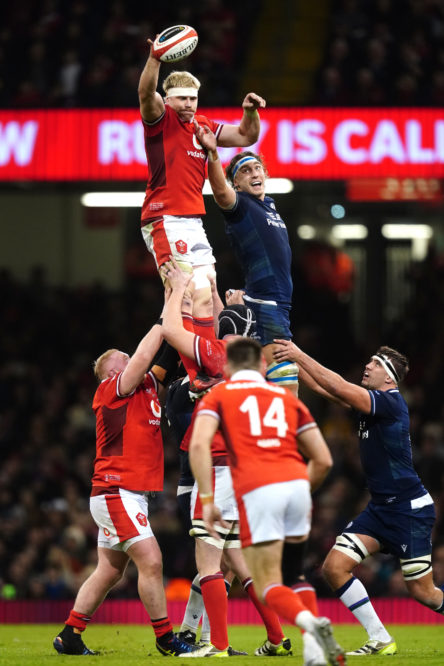
Havoc
Bit by bit, the gap closed, with Man of the Match Aaron Wainwright stepping inside to the line following a tap-and-go from Dee on the hour mark.
No 8 Wainwright was galloping around the field like a man possessed, wing Dyer was running this way and that, causing all kinds of havoc, while Tomos Williams and Ioan Lloyd were providing a creative spark as replacement half-backs.
It was thrilling stuff and a million miles away from what we had endured in the first half.
Then when debutant Mann broke away from a fast moving lineout drive to score 11 minutes from time, Wales really were in dreamland.
The leap in the air from the celebrating Nick Tompkins summed up the feeling in the ground, with Ioan Lloyd landing the conversion from wide out to cut the gap to just a point and turn up the volume still further.
They couldn’t, could they? Could they really turn around a 27-0 deficit to complete the comeback of all comebacks?
Well, they had their chances in the final five minutes, but it wasn’t quite to be, with an attacking lineout going astray and one last opportunity petering out as possession was lost.
After that, they weren’t to make it out of their own half again and Scotland saw the game out for their first victory in Cardiff for 22 years.
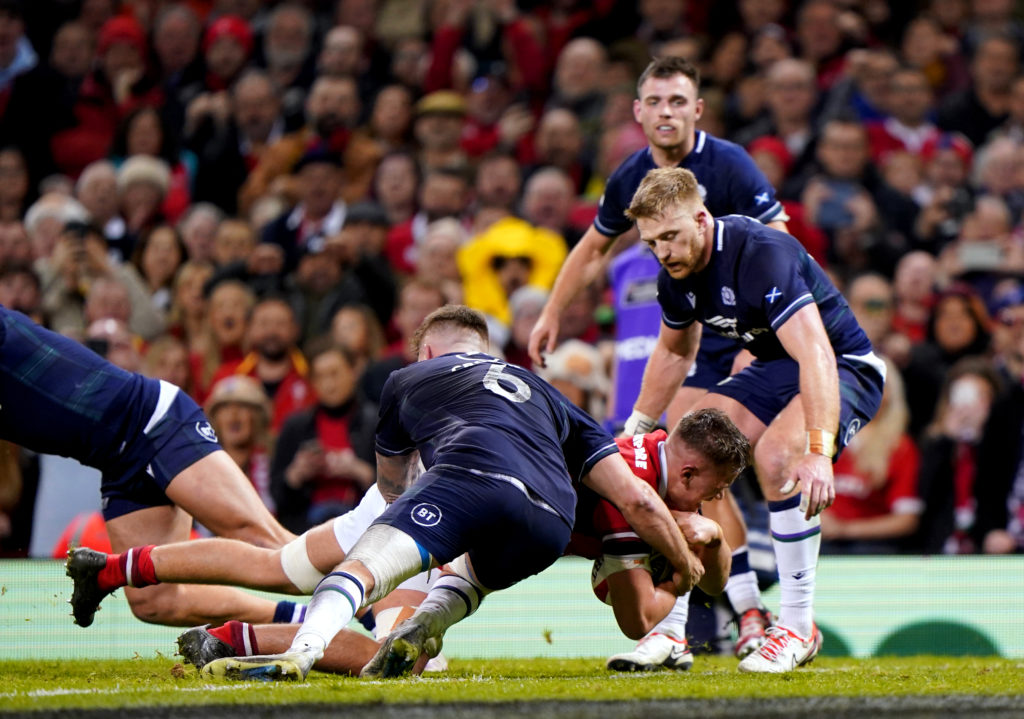
Consolation
For Wales, there was the consolation of two losing bonus points, but more important is what they will have taken out of the second half both individually and collectively.
Dee, Tomos Williams and Lloyd have all staked major claims to start against England at Twickenham next Saturday, while fellow subs Mann and Keiron Assiratti have also pushed themselves right into the frame. With George North and Will Rowlands potentially back available to provide further options, it will be an intriguing selection.
What Wales have also hit upon out of adversity is an enterprising, high-pace style that suits this group of players.
Where there had seemed no hope whatsoever after 43 minutes, there is now some hope and reason to look ahead to the rest of the Six Nations with a degree of positivity, rather than positively dreading it.
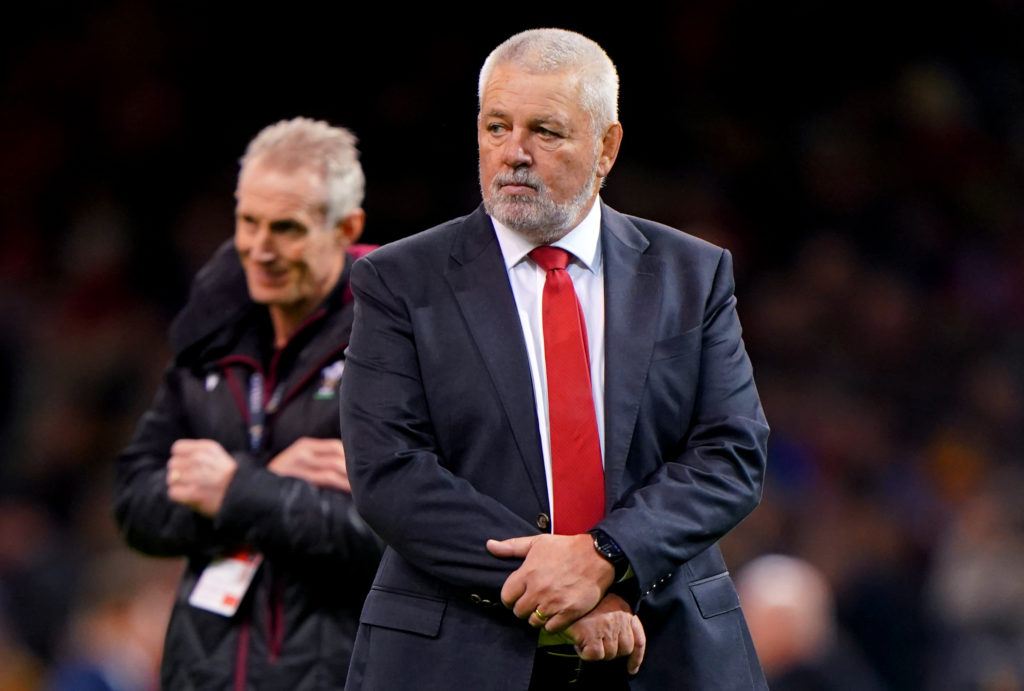
Transformation
So what was it that sparked the total transformation in Wales’ performance?
Well, Gatland put it quite simply afterwards when he said: “We started to play some rugby.”
Reflecting on the game as a whole, the Kiwi coach declared: “I apologise for that first half. It was probably one of the worst performances, 40 minutes of rugby, in my whole career as a coach. It was terrible. We were shocking.
“It was such a disappointing first half. We were so slow, our discipline was poor. “Whether we gave Scotland too much respect, I don’t know.
“The message at half-time was to bring some tempo. There was nothing flashy about what was said, it was go out there and play some rugby.
“I was a lot more pleased with the second half. We showed what we can do.
“We got ourselves back into the game and were a bit unlucky in the end.
“The boys showed some character and we will learn a lot from this.
“They should be disappointed because of that first half performance, but also proud they hung in there, didn’t throw the towel in and came back.
“It will be massive for us, a good stepping stone for a lot of these young players.”
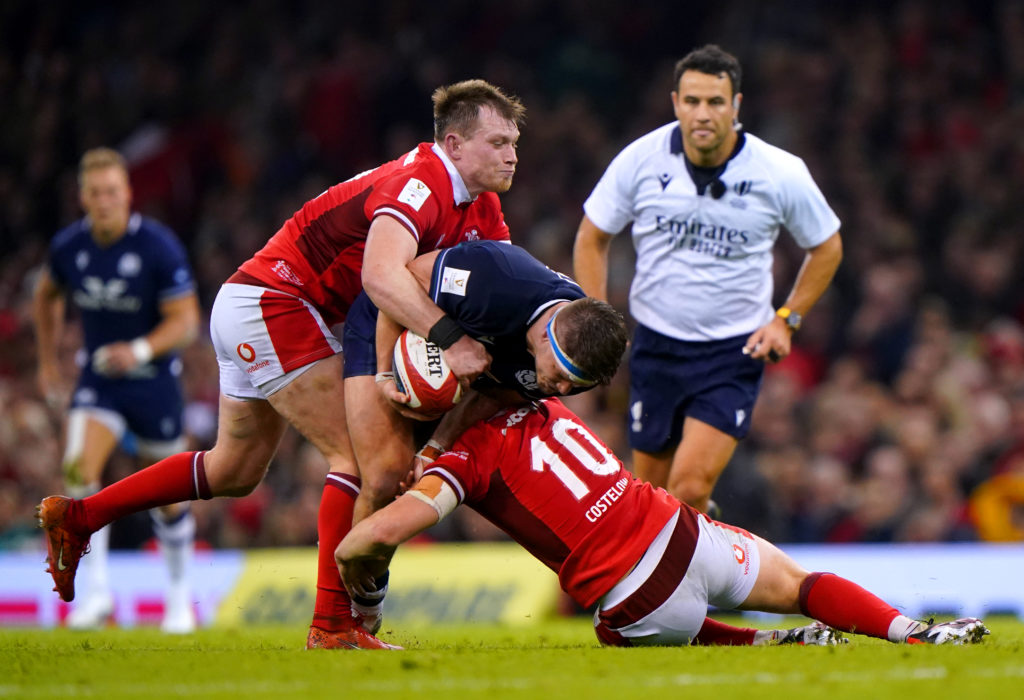
Turnaround
What of the pundits’ take on the turnaround?
Giving his thoughts, Martin Johnson said: “The thing about Welsh rugby players is if you give them the ball in their hands, they know what to do and off they go.
“Suddenly it was chaotic, non-structured rugby and it suited Wales.”
Fellow BBC commentator Sam Warburton concurred, saying: “Welsh boys, by nature, want to play.”
On the comeback, he added: “It was amazing. I was actually out of breath watching it.
“Wales are building and I am very proud of the resilience of the younger boys.
“That could have been a really ugly game. If Wales had lost by 40 or 50 points, there could have been a lot of boys in the international abyss for a few years, but many of them redeemed themselves in the second half.”
One final thought from me.
If referee Ben O’Keefe had awarded a penalty try when Scotland hooker George Turner pulled down the driving maul ahead of Botham going over, Wales would have won, as Lloyd’s conversion went wide.
A suitably strange footnote to the craziest of games!
Support our Nation today
For the price of a cup of coffee a month you can help us create an independent, not-for-profit, national news service for the people of Wales, by the people of Wales.







The penalty try that never was, was never a penalty try. A penalty try is awarded if the offence prevented a try or prevented one being scored in a better position. But, a try was scored and no-one could honestly say that, but for the offence, we would have scored in a better position. The yellow card was simply for a cynical/repeat goal line infringement. And, despite everything, Scotland did actually fully deserve their win.